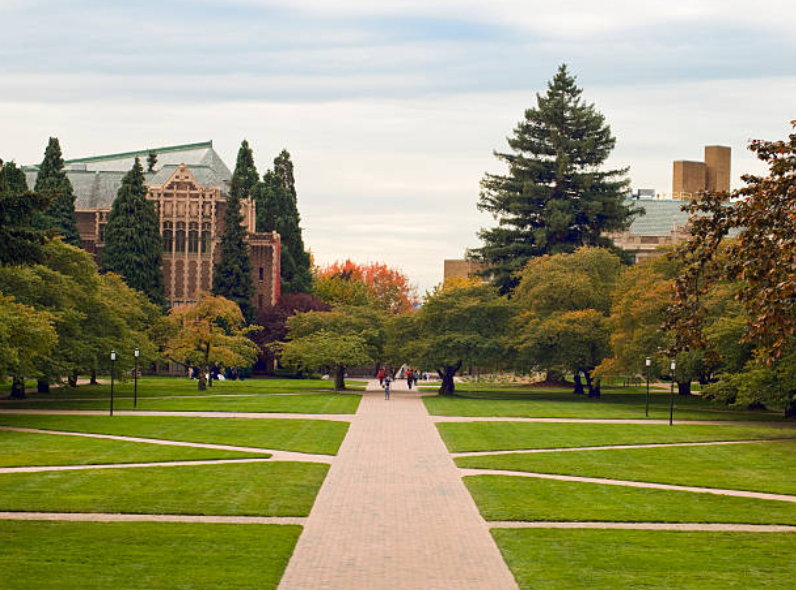 Environmental studies at the W. M. Keck Remote Sensing Lab, Department of Earth & Space Sciences University of Washington, Prof. Alan Gillespie. The Remote Sensing lab has been conducting geological & environmental studies for more than twenty years.
Environmental studies at the W. M. Keck Remote Sensing Lab, Department of Earth & Space Sciences University of Washington, Prof. Alan Gillespie. The Remote Sensing lab has been conducting geological & environmental studies for more than twenty years.
Major areas of focus have been:Forestry Analysis of forest re-growth and structural stage using spectral mixture analysis of satellite images Ecology Infrared stream temperature monitoring for fish health in the Pacific Northwest Desert Landform Evolution Estimation of soil characteristics and environmental risks such as dust production from relative dating of surfaces Archaeology Improved survey methods for artifacts such as pottery shards and obsidian flakes using low-altitude thermal-infrared imaging Paleo climate Reconstruction of climatic history of the past 100,000 years in Central Asia, from analysis and dating of glacial and lake deposits.Previous
Save The Earth Foundation supported the Remote Sensing Lab to study forest mapping and re-growth in a heavily logged area of northern California on the Klamath River. This support led to a publication explaining the approach and to two Master’s theses. Save The Earth research also identified key areas in image processing that required further attention for remote forest monitoring Sabol, D.E., Gillespie, A.R., Adams, J.B., Smith, M.O., and Tucker, C.T., 2002. Structural stage in Pacific Northwest forests estimated using simple mixing models of multispectral images. Remote Sensing of Environment 80/1, 1-16.